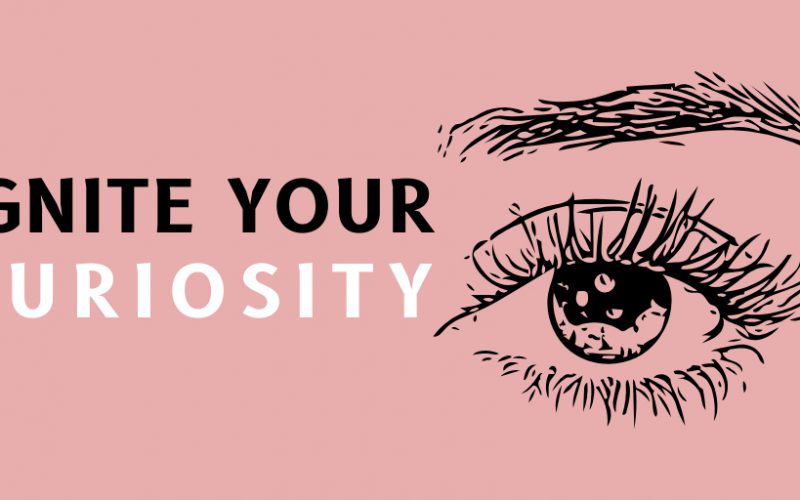Google is our friend, always there to answer all our queries. It’s a knowledge database that became everybody’s memory card.
“Hey Google, what is coding?”
“Hey Google, who is today’s president?”
“Hey Google, what happens when I put chips in the freezer?”
“Hey Google, how can I be happy?”
We have a lot of questions dancing around our brains. It’s one of the good things we can’t control. All those questions that were asked and answers that were sought made up the world that we live in today.
We, ever-evolving humans, learn from what we experience all throughout our lifetime. Our curiosity expanded human potentialities. As Tom Ford put it from his article entitled “Why are we so curious?” featured in BBC Future:
“Evolution made us the ultimate learning machines, and the ultimate learning machines need to be oiled by curiosity.”
Our brains need to be oiled by curiosity. Here are four ways to ignite it:
4 WAYS TO IGNITE YOUR CURIOSITY
#1 SELF-STUDY
Let’s say, you came across the term: “Discombobulate.”
Your natural tendency is to google the meaning of that word. Then, you’ll look up how it’s used in a sentence. Lastly, you would want to figure out how and when you could use it at some point.
And that’s self-study, ladies and gentlemen.
Of course, we don’t only get curious with new terms like discombobulate. We get curious about bigger things too. And the way to grasp a bigger knowledge is to commit to a series of studying or reading.
There are three things to remember when you go for self-studying: Consistency. Pacing. Motivation.
Consistency. It requires you to make time for it and we all know that there’s an effort on consistency. To be able to grasp a certain knowledge when you do self-studying, you have to commit.
Pacing. Tracking your progress is essential when you do self-studying. You wouldn’t read the same chapters of a book over and over again to widen your knowledge about something, would you? Pacing makes sense.
Motivation. Without it, we wouldn’t be making an effort to be consistent and to have pacing. There should be a constant urge to keep you wanting to know more about a thing.
#2 TAKING SHORT COURSES AND TRAINING
You would say, “This requires me to invest my money to enrol.”
Well, yes but investing your money to advance your skills at anything is not a waste of money. Unless you enrol and not take the training seriously.
Also, if your end goal is to obtain certificates of completion, don’t bother. Your main reason for enrolling should be YOU WANTING TO LEARN. You enrol at these short courses and training not to brag about the completion. It’s how you apply what you have learnt that counts.
Why even bother spending money just to ignite my curiosity?
Here’s the thing: It will always depend on how serious you are about something. If you prefer to not take that curiosity to the next level, then don’t.
#3 FINDING AN ACCOUNTABILITY PARTNER OR A MENTOR
This is weird. Why would you find someone to check on you? You got curious and you wanted to know it. Why so serious?
The thing about “committing to learning something new” is that if we do it alone, we let considerations overflow. It goes from “I will make time for this new pursuit of knowledge.” to “Why am I even educating myself? I should watch Netflix.”
Sometimes we treat our curiosity like a TV commercial. It keeps popping up in front of our noses but we just let it pass by. And since we only consume what we only want to consume, we waste possibilities, opportunities, and time.
Later on, our brains would ask the same questions, then we’d have to win the battle between our lack of recognition of our curiosities and our own commitment to making time for it.
With an accountability partner or a mentor, it helps us commit to our goals and take our curiosities seriously.
#4 CONNECT WITH PEOPLE. GROUP UP.
Find like-minded people to study with or people who can work on a project with you. For instance, your siblings, if not your friends.
When you surround yourself with people who want to learn a similar topic, you get to share what you know and in exchange, they share to you what they know. By connecting with people, there is a consistent need of wanting to know more so that you would have something to share.
Engaging with healthy conversations works evidently since schooling is one of the best examples of grouping up.
Two or more people talking about their same interests creates a multitude of ideas. Not only you benefited from having smart conversations with people, but you have also helped embark a spark of curiosity for others.
REMEMBER: YOU ARE CURIOUS FOR A REASON
We all have different passions and curiosity about things. And that’s the beauty of it!
Combining everyone’s curiosity resulted in what we all have now in this current world that we live in. We get curious for a reason. Whatever the reasons are, make use of it and watch yourself grow. After all, our own curiosity makes us, us.



